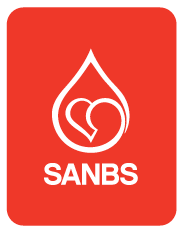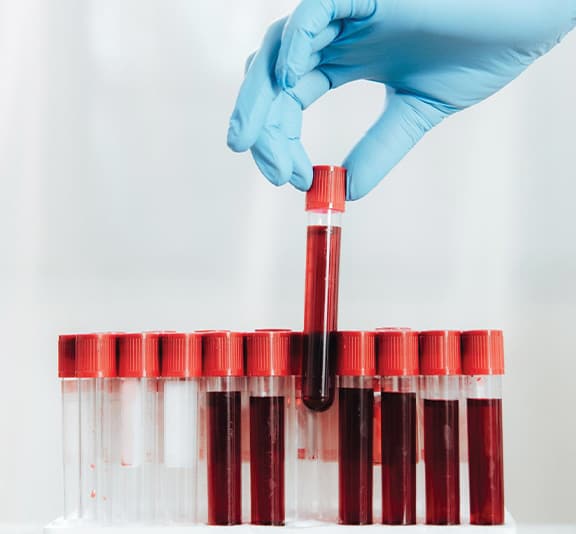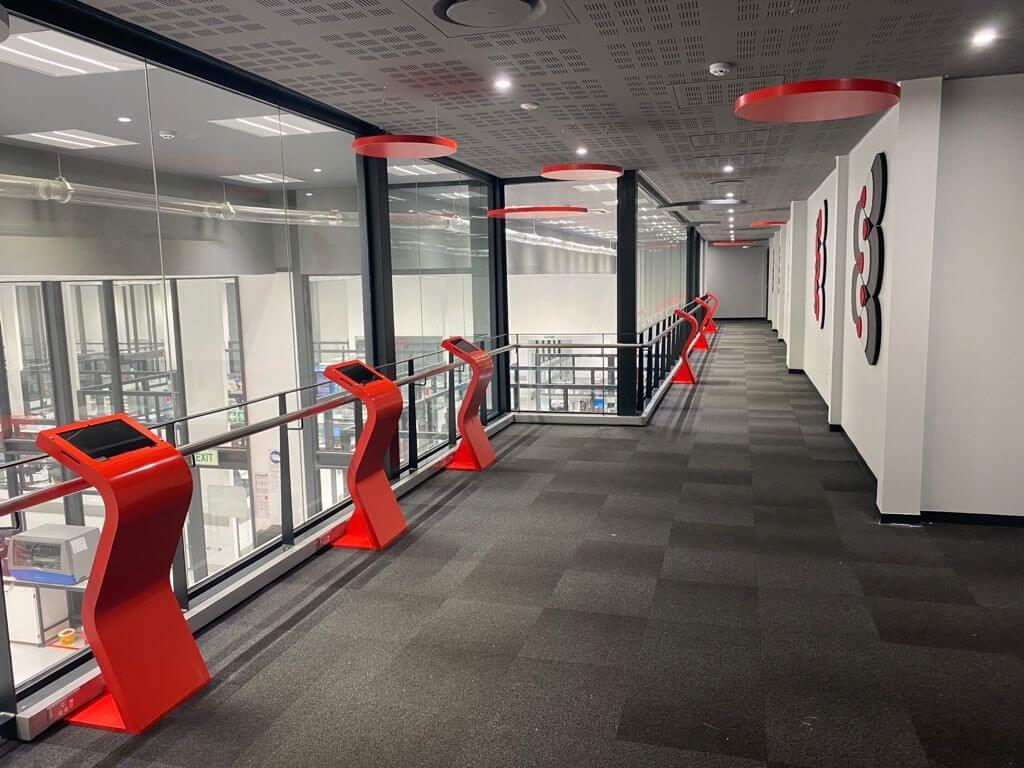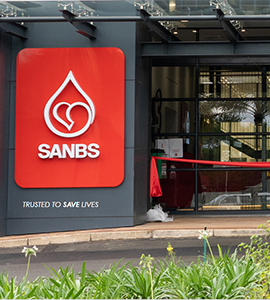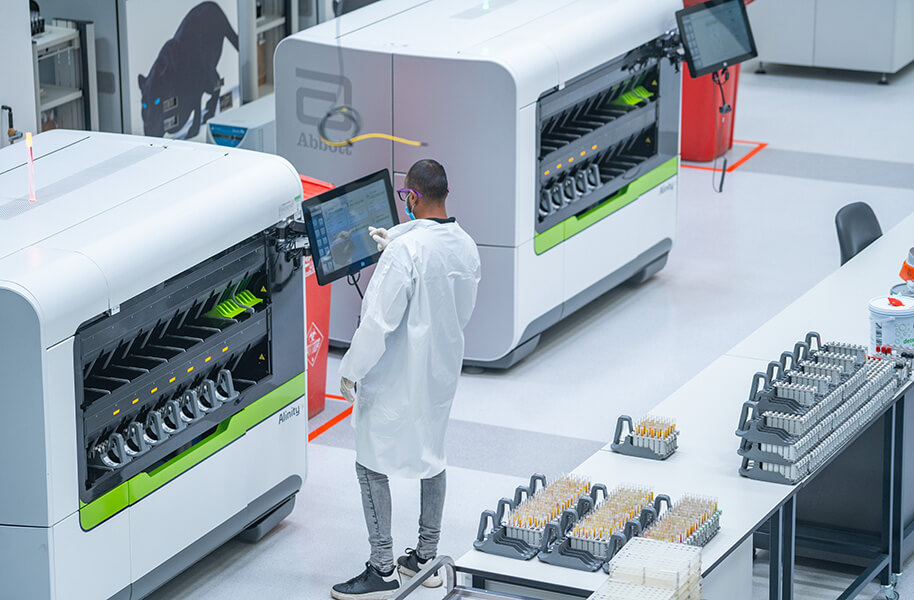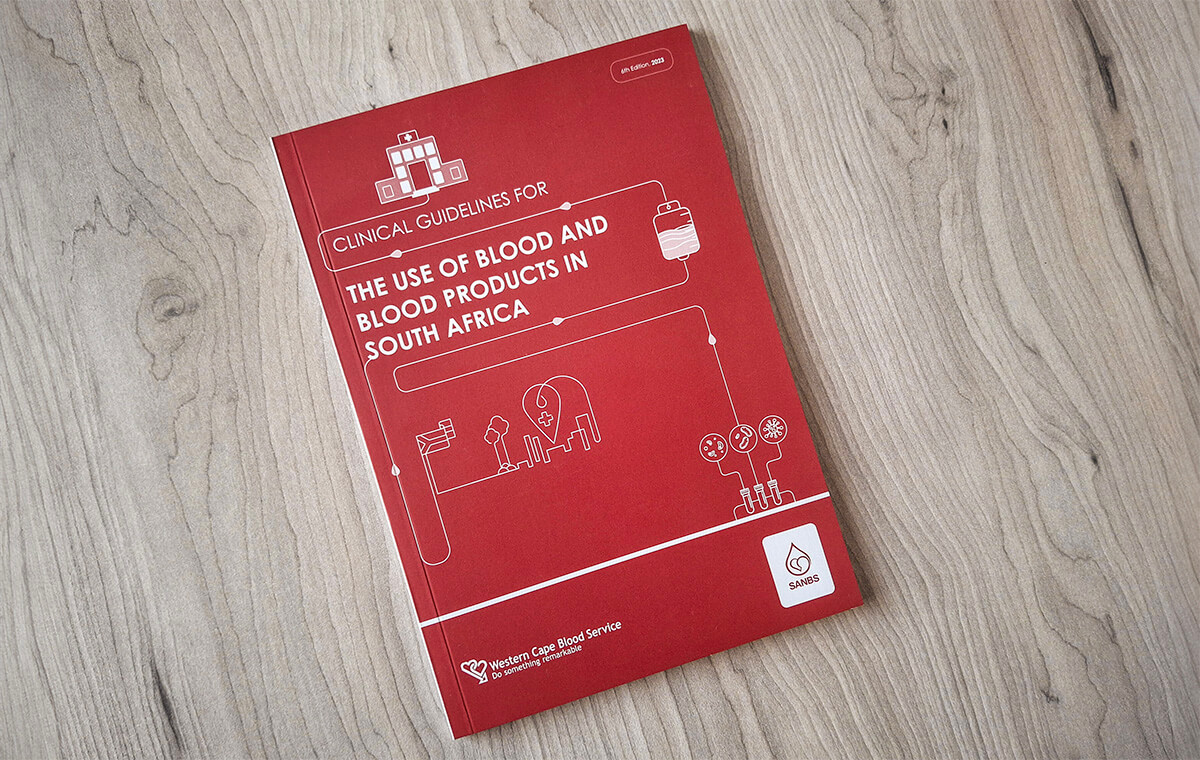Iron, Ferritin, and Blood Donation
Your health and well-being are important to us.
The South African National Blood Service checks your haemoglobin before each blood donation.
Haemoglobin is a protein in your body that contains iron and carries oxygen to different tissues in your body.
A haemoglobin test is conducted prior to each blood donation to determine if it is safe for you to donate. If your haemoglobin is too low we will advise you to not donate until the haemoglobin has improved.
When you donate blood, you give away iron. Iron is a major constituent of haemoglobin. Your body needs iron for various metabolic processes, including the production of new blood cells.
We encourage all blood donors to learn how to maintain healthy iron levels.
Frequently Asked Questions about Iron, Ferritin Tests, and Blood Donation
Donating a unit of whole blood leads to a loss of 200 – 250 mg of iron.
You can develop iron deficiency if you lose iron faster than you replace it. Uncorrected iron deficiency can lead to anaemia.
The majority of donors have sufficient iron to donate blood safely however, pre-existing low iron status, a diet low in iron, and certain underlying medical conditions coupled with frequent blood donations can lead to low iron over time.
Many individuals with low iron do not have symptoms. Symptoms of low iron can vary from mild to severe and include tiredness, weakness, dizziness, sores on the tongue, and poor concentration.
Ensure you eat a well-balanced, nutritious diet, rich in iron and vitamin C. See our which food is rich in iron for some of the foods you can take. However please note, diet alone may not be sufficient to replenish the iron you routinely lose through whole blood donation.
The SANBS recommends that individuals aged 16 – 45 who donate whole blood take iron supplements offered after donation.
The time it takes to replace iron through diet varies. For some donors, it may take longer than 12 weeks between donations. Iron tablets assist in speeding up the recovery of iron lost through blood donation.
The SANBS recommends that individuals over the age of 45 consult their Medical Practitioner to find out if taking iron supplements is right for them.
Iron tablets can often mask conditions that would present through low iron, such as colon cancer. Therefore, a Medical Practitioner can exclude these conditions before issuing iron tablets.
You can have normal haemoglobin even though your iron stores (ferritin levels) have dropped. Ferritin is a more reliable indicator of body iron levels.
If your ferritin levels are low, take iron tablets, even if your haemoglobin level is normal. We recommend taking iron supplements if your ferritin levels are below 100 µg/L.
You can donate blood while taking iron tablets for supplementation purposes. However, you cannot donate blood while taking iron tablets to treat low iron, i.e., you cannot donate blood if you are taking iron tablets prescribed by a doctor to treat iron deficiency or anaemia.
If you are receiving iron tablets offered by SANBS post-donation, we advise that you take one tablet per day.
The new iron tablets, chelated iron have been proven in clinical trials to cause little to no side effects. They are up to 3 times more effective at improving iron levels and they can be taken with food.
If you have any questions on the above, please contact our Customer service department on 0800 119 031.
We look forward to helping you improve your iron levels!
The new iron tablets offered by SANBS cause minimal to no side effects. As described on the package insert, possible side effects include gastric discomfort, abdominal pain, nausea, vomiting, and constipation.
- Individuals diagnosed with high iron, such as haemochromatosis and hemosiderosis should not take iron tablets.
- Individuals with disturbances in iron metabolism, for example, thalassaemia and sideroblastic anaemia should not take iron tablets.
- Individuals with hypersensitivity to iron should not take iron tablets.
- Individuals with kidney disease should consult their Medical Practitioner before taking iron tablets.
- Individuals with a history of bleeding stomach ulcers or a family history of colon cancer should consult their Medical Practitioner before taking iron tablets, as iron tablets can mask an underlying condition that could otherwise be diagnosed through low haemoglobin.
Iron tablets are not usually harmful to adults when taken as directed. Accidental ingestion by children can be dangerous. You should keep all iron-containing products out of reach of children.
A test that measures the amount of iron stored in your body. When a person donates blood, they normally get tested for haemoglobin. Haemoglobin measures the amount of red blood cells circulating in the blood, which contain iron.
Haemoglobin provides an indication of the amount of iron circulating in the blood, while ferritin indicates the amount of iron stored in the body. Ferritin provides a more accurate indication of the amount of iron in your body because it measures iron stored in the body.
Ferritin is used to check whether a person has normal iron stores, low iron stores (Iron deficiency) or abnormally high iron stores (Iron overload). Blood services worldwide are introducing routine Ferritin testing for blood donors in addition to haemoglobin, and SANBS is doing the same.
The SANBS has introduced a ferritin test for whole blood donors. The test is conducted following the donation of a unit of whole blood to determine your iron stores. Depending on your last ferritin test results, the test is conducted at different times.
You will be notified of abnormal ferritin test results via a WRAP message, which is a message sent to your cell phone via an SMS link.
Abnormal results are either below the normal ferritin test cut-off level or above the cut-off level. You will also be advised on what action to take regarding these abnormal results.
A normal haemoglobin does not always imply that the ferritin (iron stores) is normal. It is possible to have normal haemoglobin even though your iron stores (ferritin) are low or high.
This is why SANBS has introduced a ferritin test, which will assist us to more accurately determine if your iron stores are adequate, low, or high. This information helps us advise you accordingly so that you can maintain healthy iron levels.
Organise a blood drive!
Help SANBS recruit new blood donors by organising a blood drive in your community,
office, school, college, church, or residential complex.
